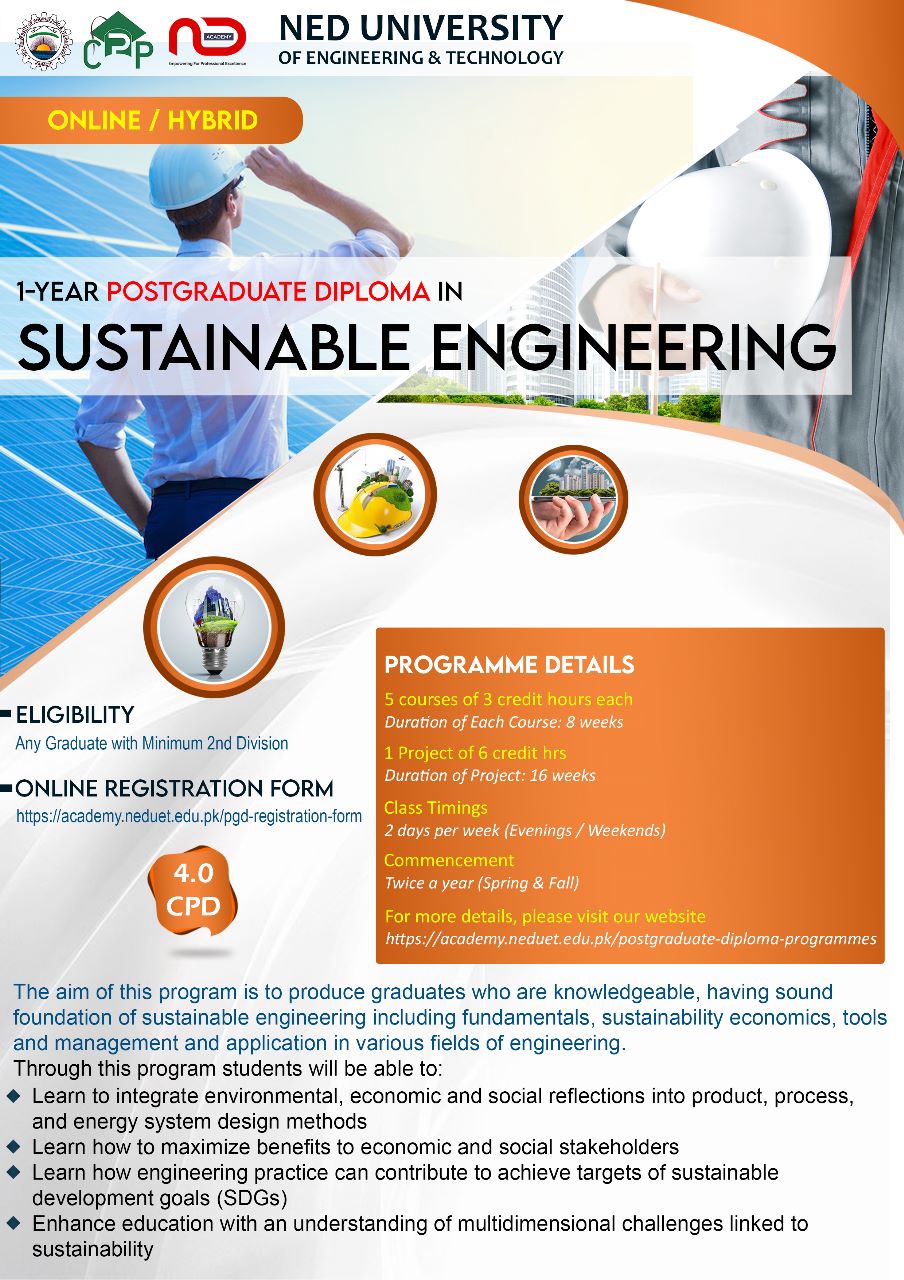ABOUT COURSE
Course 1. Fundamentals of Sustainable Engineering
Concept of Sustainability; Environment and development; Economic and Social Dimensions; Sustainability Approaches in Engineering; Role of Technology; Tools for sustainability; Challenges in Business and Circular Economy; Sustainable Development Goals and their Implementation in Engineering Projects.
Course 2. Sustainability - Economics, Tools, Management
Economics of sustainable development and international environmental problems; Ecological footprints; Carbon footprint; Lifecycle assessment; Material flow analysis; Impact assessment; Management systems; Sustainability reporting
Course 3. Sustainable Waste Management
Elements of Waste management, Waste Characterization, Waste Collection and Transportation, Waste Prevention, Minimization and Recycling, Waste Treatment and Disposal, Challenges of Waste Management System in Developing Countries, Construction and Demolition Waste Management, Hazardous and Radio-active Waste Management, Zero Waste’ Concept Waste Management, Life Cycle Design
Course 4. Energy Management
The role of energy manager. Attitudes to energy efficiency, the objective of energy management, priorities, and strategies, Plant control, Burner control unit, compensator and optimiser, control and use of an energy management system, Remote monitoring and out-station operation, degree days performance lines and targeting, Audits, Environmental, energy and social, Data on energy resources, and reserves and relation of resources to future options. Energy demand models prices and elasticities, concepts of economic growth, energy gap concepts, and operation research techniques in energy modeling. Energy Transmission & Utilization: Quality and economics criteria in selection of energy equipment and processes. Waste Heat Recovery System: Thermal wheels, heat pipes, turbo expanders, heat pumps and the co-generation of heat and power for both heating and cooling systems. Design and balance of total energy systems. Energy Resources such as Fossil and derived fuels, exploration and production techniques. Renewal fuels, solar radiation wind power, wave and tidal energy, bio-fuels, geo-thermal, refuse driven. Solar Energy Conversion Systems: Solar energy and its conversion for use of society, fundamentals of solar radiation, solar collection and thermal conversion systems. Components, economics of solar power.
Course 5. Agile and Lean Manufacturing
Introduction to Lean Manufacturing, value concept, lean objectives & tools, origins of lean systems, group technology, 5S, single minute exchange of dies, total productive maintenance, Kaizen, Just-In-Time Manufacturing Systems, Push & Pull Manufacturing Systems, Poka-Yoke, Toyota production system, introduction to agile manufacturing, research projects in agile manufacturing, design of market responsive supply and distributions manufacturing systems.


